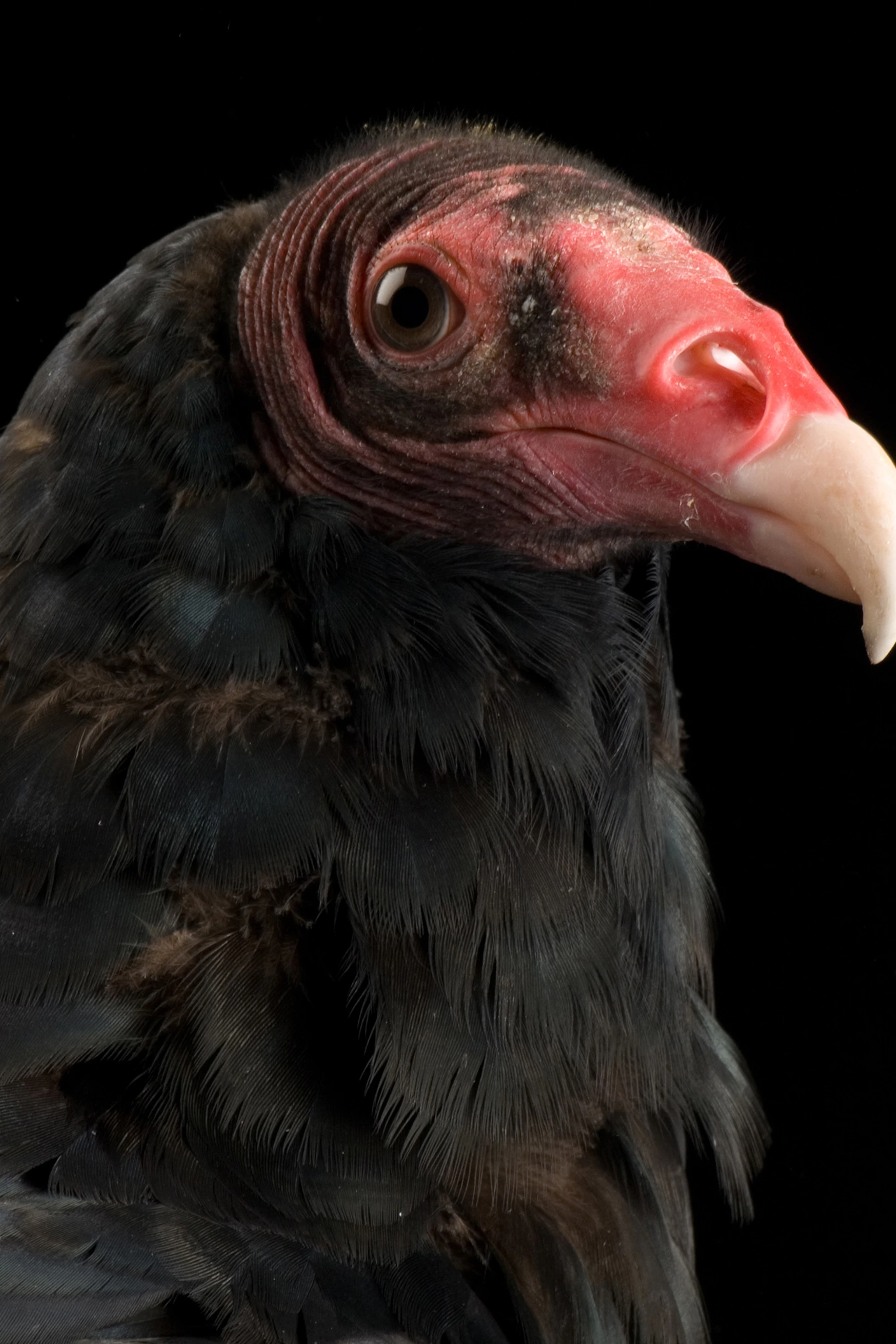
You've probably seen them roosting on rooftops at Freshfields, those hulking black silhouettes of the turkey vulture . Few would consider these impressive birds beautiful, but they serve a crucial function in Lowcountry ecology as nature's sanitation engineers, diligently consuming carrion and other odiferous items that would otherwise lay rotting and flyblown.

South Carolina has two species of vulture - the gray vulture (Cathartes aura), distinguished by the gray underside feathering of its wings, and the black vulture (Coryagus atratus), which is nearly all black except for gray "fingers" on its wingtips. These two are examples of convergent evolution, for they belong to different taxonomic orders but evolved separately along similar lines. They both have wingspans of up to five feet, and on the wing both exhibit the characteristic "wobbling" flight as they ride thermals far above the ground in search of food.
Vultures have one of the keenest senses of smell in the animal kingdom, and gray vultures can detect the odor of carrion from many feet in the air. (Black vultures tend to swoop closer to the ground to pick up the scent, or spot their next meal by sight.) With their hairless, bright red heads and hooked beaks, vultures can consume even a large carcass in a matter of hours. Despite their feisty appearance, vultures are highly social, forming close bonds marked by sharing food and nesting sites, at which the female lays three or four eggs on the ground. Both parents see to the chicks after hatching.

But strangers to the group (including humans who come too near) should beware, for one of the vulture's chief defense mechanisms is to vomit on intruders - given their diet, a formidable challenge. Vultures have an extremely high acid level in their stomach, allowing them to consume even diseased carrion with no ill effects. One other fun vulture fact: on hot summer days, vultures will defecate on their feet to cool off.
The word vulture most likely comes from the Latin vellere, which means to pluck or tear, but far more pleasant is the gray vulture's Latin name Cathartes aura, which can be translated as "purifying breeze", a more poetic rendering of this native bird's ability to keep our yards and roadsides clean.

